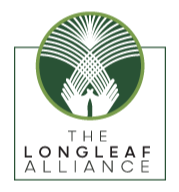Projects RSS
by
Web Editor
—
last modified
Jul 03, 2013 03:21 PM
- Adapting conservation to a changing climate: an update to the Illinois Wildlife Action Plan — by Jeff Walk, Sarah Hagen, and Aaron Lange — last modified Dec 17, 2015 12:15 PM
- Full report of methods and results of climate change vulnerability assessments of 162 species in greatest conservation need.
- Assessing the Potential Effects of Climate Change on Species in the Cumberland Piedmont Network of the National Park Service — by Web Editor — last modified Dec 17, 2015 12:12 PM
- In this study, we evaluate the climate change vulnerability of a subset of key species found in the Cumberland Piedmont Network (CUPN) of the National Park Service (NPS), an ecologically important and diverse region. We developed a list of species of conservation concern (globally and sub-nationally) within each of the fourteen NPS units in the CUPN. Next, we employed NatureServe’s Climate Change Vulnerability Index (CCVI) in order to determine which of those species may be most vulnerable to climate change, based on each species’ 1) direct exposure to climate change, 2) indirect exposure to climate change, 3) sensitivity, and 4) documented/ modeled response to climate change. CCVI results showed a range of vulnerability scores among taxonomic groups, including high vulnerability for mollusks and low vulnerability for migrant songbirds. Furthermore, we found that species of conservation concern were not necessarily those most vulnerable to climate change.
- South-Central Interior Small Stream and Riparian Habitat — by Lesley Sneddon — last modified Dec 17, 2015 11:55 AM
- This habitat was assessed in both the Cumberland - Southern Appalachian subregion and the Interior Low Plateau subregion. Results are in the first two tabs of the spreadsheet. A description of the habitat, and a list of associated species, is included in the description tab. The remaining tabs describe the individual factors and their definitions. These results are in the review stage. Please send comments to lesley_sneddon@natureserve.org.
- Core Team Meeting Notes, 10-01-2015 — by mmallek — last modified Dec 02, 2015 02:29 PM
- Notes/summary from October 2015 Core Team Meeting
- Video Update: Stream Classification Research — by Matthew Cimitile — last modified Dec 01, 2015 02:03 AM
- This video presentation from Mark Anderson and Arlene Olivero Sheldon of The Nature Conservancy provides an update to the Steering Committee on this Appalachian LCC funded research project. A Stream Classification System for the Appalachian LCC is developing a hierarchical classification for stream and river systems and a GIS map for aquatic ecosystems. The study will include a report describing the methods used to evaluate and develop the classification system, a literature review of existing stream classifications, and a GIS stream data set.
- Video Update: Climate Change Vulnerability Research — by Matthew Cimitile — last modified Dec 01, 2015 02:03 AM
- This presentation from Lesley Sneddon of NatureServe provides an update to the Steering Committee on this Appalachian LCC funded research project. Research is compiling climate change vulnerability assessments and other relevant information on vulnerable species and habitats, discerning the various methodologies and criteria used in these assessments, and using a team of expert peer reviewers to recommend the most efficient, effective, and appropriate methods for adoption by the Appalachian LCC for conservation and adaptation planning. The recommended method will then be deployed, resulting in vulnerability assessments for a suite of key species/habitats selected in consultation with partners of the Appalachian LCC.
- Instructions – Central Appalachian Spreadsheet — by Web Editor — last modified Dec 01, 2015 02:03 AM
- This spreadsheet is a subset of a larger data set that contains a compilation of climate change vulnerability scores for over 700 species in the Appalachian LCC.
- Vulnerability of at-risk species to climate change in New York — by Matthew Schlesinger, Jeffrey Corser, Kelly Perkins, and Erin White — last modified Dec 01, 2015 02:03 AM
- This report provides the methods and results of climate change vulnerability assessments of 119 species in New York.
- Climate Change Vulnerability Assessment of Species of Concern in West Virginia — by Elizabeth Byers, Sam Norris — last modified Dec 01, 2015 02:03 AM
- Elizabeth Byers and Sam Norris. 2011. Climate change vulnerability assessment of species of concern in West Virginia. West Virginia Division of Natural Resources, Elkins, WV. This project assessed and ranked the relative climate change vulnerability of 185 animal and plant species in West Virginia.
- Schwenk - CT Update Slides — by mmallek — last modified Oct 01, 2015 09:39 AM
- Maps and visual aids for Scott Schwenk's update on the status of the Connecticut River project
- How to access final products on Data Basin (10/01/15) — by rvieira — last modified Oct 01, 2015 08:56 AM
- Guidance document for accessing the data.
- Landscape Conservation Design Data Products — by rvieira — last modified Sep 30, 2015 01:34 PM
- Landscape Conservation Design Data Products for the Connect the Connecticut project. Revised September 30, 2015
- Process and Key Decisions Document — by mmallek — last modified Sep 24, 2015 05:10 PM
- Document updated as of August 6, 2015
- Introduction to Data Basin — by bmacdonald — last modified Sep 18, 2015 09:37 AM
- Slides presented by Renee Farnsworth on the North Atlantic LCC's Conservation Planning Atlas on Data Basin on September 10, 2015
- Landscope Chesapeake Overview — by bmacdonald — last modified Sep 18, 2015 09:35 AM
- Slides presented by Renee Farnsworth on Landscape Chesapeake on September 10, 2015
- Excercise - Using NALCC Conservation Planning Atlas on Data Basin — by Andrew Milliken — last modified Sep 18, 2015 08:06 AM
- Excercise - Using NALCC Conservation Planning Atlas on Data Basin used for hands-on training at the CBFO partners meeting on September 10, 2015
- Fact Sheet - Science Products from the North Atlantic LCC — by Andrew Milliken — last modified Sep 18, 2015 08:02 AM
- Fact Sheet providing examples of Science Products from the North Atlantic LCC with links
- Fact Sheet - The North Atlantic LCC in the Chesapeake Bay Watershed — by Andrew Milliken — last modified Sep 18, 2015 07:58 AM
- Fact Sheet providing examples of products and partnerships associated with the North Atlantic LCC in the Chesapeake Bay Watershed with links
- Presentation - Overview of North Atlantic LCC Approach, Partnership & Products & Some Coastal Stuff — by Andrew Milliken — last modified Sep 18, 2015 07:46 AM
- Presentation by Andrew Milliken at CBFO on September 10, 2015 - Overview of North Atlantic LCC Approach, Partnership & Products & Some Coastal Stuff
- Presentation - Aquatic, Terrestrial and Landscape Conservation Design Tools and Products of the North Atlantic LCC — by Andrew Milliken — last modified Sep 17, 2015 04:32 PM
- Aquatic, Terrestrial and Landscape Conservation Design Tools and Products of the North Atlantic LCC -- presentation by Science Coordinator Scott Schwenk at Chesapeake bay Field Office, September 10, 2015


























